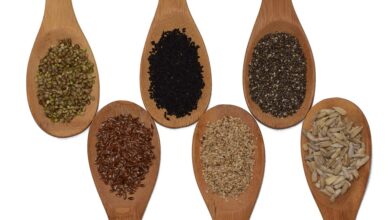Hemp: A New Frontier in Agriculture and Farming

Hemp has been cultivated for centuries for its versatile uses and benefits, and in recent years, it has experienced a resurgence as a new frontier in agriculture and farming. With its wide-ranging applications in textiles, paper, construction materials, food products, and health supplements, hemp presents a promising opportunity for farmers to diversify their crops and contribute to the growing demand for sustainable and eco-friendly products.
The term “hemp” refers to the industrial plant Cannabis sativa, which is grown for its fibers and seeds. Unlike its close relative, marijuana, hemp contains very low levels of THC, the psychoactive compound that gives marijuana its intoxicating effects. This key distinction has led to the reemergence of hemp as a viable agricultural crop, as it can be legally grown and harvested in many parts of the world.
The Industrial Hemp Market
The global industrial hemp market has been expanding rapidly in recent years, driven by increasing demand for sustainable and eco-friendly products. The versatility of hemp makes it a valuable commodity in a wide range of industries, including textiles, paper, construction, food and beverages, health and wellness, and biofuels.
In the textiles industry, hemp fibers are valued for their strength, durability, and breathability, making them ideal for clothing, upholstery, and other textile products. Hemp paper is an eco-friendly alternative to traditional wood-based paper, as it requires less water and chemical inputs in the production process. In the construction industry, hemp-based materials such as hempcrete and hemp insulation offer sustainable and energy-efficient alternatives to traditional building materials.
Hemp seeds are a rich source of protein, healthy fats, and essential nutrients, making them a popular ingredient in health and wellness products. They can be used to produce hemp oil, which is valued for its high levels of omega-3 and omega-6 fatty acids. Hemp seeds are also used in a variety of food and beverage products, including hemp milk, hemp protein powder, and hemp-based snacks.
The Farming Potential of Hemp
Hemp is well-suited to a wide range of climates and growing conditions, making it an attractive crop for farmers looking to diversify their production. It requires minimal inputs in terms of water, pesticides, and fertilizers, and its deep roots help to improve soil structure and reduce erosion. In addition, hemp can be grown in rotation with other crops, allowing farmers to improve soil health and reduce the risk of pests and diseases.
One of the key advantages of hemp cultivation is its high yield potential. Hemp plants can produce a large amount of biomass, which can be used for a wide range of applications, including textiles, paper, construction materials, and biofuels. In addition, hemp seeds are a valuable source of protein and healthy fats, making them a lucrative crop for farmers to consider.
Furthermore, hemp cultivation has the potential to provide economic opportunities for rural communities and small-scale farmers. As the demand for hemp-based products continues to grow, there is increasing interest in developing local and regional supply chains for hemp production and processing. This presents an opportunity for farmers to participate in a growing industry and contribute to sustainable agricultural practices.
Regulatory Considerations for Hemp Farming
While the market potential for hemp is significant, there are a number of regulatory considerations that farmers need to be aware of when considering hemp cultivation. In many countries, hemp production is subject to specific licensing and regulatory requirements, including the need to obtain a permit for cultivation, adhere to strict THC limits, and comply with local and national regulations for hemp farming and processing.
For example, in the United States, the Agriculture Improvement Act of 2018, also known as the 2018 Farm Bill, removed hemp from the list of controlled substances and legalized its cultivation and commercialization. However, hemp farmers are required to obtain a license from their state agriculture department, comply with THC testing and reporting requirements, and adhere to other regulatory provisions to ensure compliance with federal and state laws.
In Europe, the regulatory landscape for hemp cultivation varies from country to country, with some countries having more liberal regulations and others imposing stricter restrictions on hemp production. It is essential for farmers to understand the specific regulatory requirements in their region and ensure compliance with all applicable laws and regulations.
Frequently Asked Questions About Hemp Farming
As hemp continues to emerge as a new frontier in agriculture and farming, there are many questions that farmers may have about its cultivation, market potential, and regulatory considerations. Here are some frequently asked questions about hemp farming:
Q: What are the key considerations for farmers interested in growing hemp?
A: Farmers interested in growing hemp should consider factors such as the climate, soil type, and growing conditions in their region, as well as the specific regulatory requirements for hemp cultivation. It is important to conduct thorough research and seek guidance from agricultural experts and industry professionals to ensure a successful hemp farming venture.
Q: What are the main challenges associated with hemp cultivation?
A: Hemp cultivation presents certain challenges, including the need to comply with strict THC limits, manage pests and diseases, and establish reliable supply chains for hemp processing and marketing. Farmers should be prepared to invest in equipment, infrastructure, and personnel to ensure compliance with regulatory requirements and best practices for hemp farming.
Q: What are the market opportunities for hemp products?
A: The market opportunities for hemp products are diverse and expanding, with strong demand for hemp fibers, seeds, and extracts in industries such as textiles, paper, construction, food and beverages, health and wellness, and biofuels. As consumer awareness of the environmental and health benefits of hemp products grows, there is increasing interest in developing new and innovative applications for hemp-based materials.
Q: What are the regulatory requirements for hemp farming?
A: The regulatory requirements for hemp farming vary by region, with specific licensing, testing, and reporting requirements for hemp cultivation and processing. Farmers should consult with their local agriculture department and legal advisors to understand the specific regulatory provisions that apply to hemp farming in their area.
Q: What are the risks and rewards of hemp cultivation?
A: Hemp cultivation offers the potential for high yields, sustainable production practices, and economic opportunities for farmers. However, there are risks associated with compliance with THC limits, market variability, and supply chain challenges. Farmers should carefully evaluate the potential rewards and risks of hemp cultivation and develop a comprehensive business plan to mitigate potential challenges.
In conclusion, hemp represents a new frontier in agriculture and farming, with significant market potential and benefits for sustainable and eco-friendly production. As the demand for hemp-based products continues to grow, there are valuable opportunities for farmers to diversify their crops and contribute to the development of a thriving hemp industry. By understanding the key considerations for hemp cultivation, addressing regulatory requirements, and exploring market opportunities, farmers can position themselves for success in the emerging hemp market.
[ad_2]




